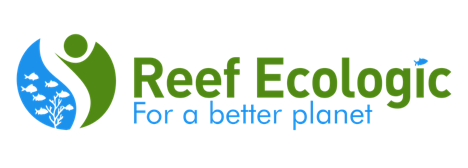



Reef Ecologic

Queensland, Australia
September 2020
Environmental consulting
Service with Significant Environmental Footprint
Australia
Reef Ecologic specialises in providing expert advice to design and implement innovative solutions to environmental challenges facing tropical marine ecosystems and the people who love and depend upon them. They bring over 40 years of experience at the leading edge of coral reef science, management and policy to provide insight, guide strategic actions and build capacity among the leaders of today and tomorrow to secure a more sustainable future. Reef Ecologic have implemented major projects in all the coral reef regions of the world, including extensive work with coral reef managers, communities and businesses in the Great Barrier Reef, Caribbean, Pacific, Southeast Asia, Red Sea and Indian Ocean. They are united by our love of coral reefs and a conviction that the considerations, decisions and actions we take can make a meaningful and enduring difference to the future of coral reefs. Through their commitment to excellence, their unique skill set and our dedication to partnerships they work with individuals, enterprises and governments and NGOs to improve the outlook for coral reefs and communities, and create a better planet for all.
Overall B Impact Score
Governance 9.0
Governance evaluates a company's overall mission, engagement around its social/environmental impact, ethics, and transparency. This section also evaluates the ability of a company to protect their mission and formally consider stakeholders in decision making through their corporate structure (e.g. benefit corporation) or corporate governing documents.
What is this? A company with an Impact Business Model is intentionally designed to create a specific positive outcome for one of its stakeholders - such as workers, community, environment, or customers.
Governance 9.0
Governance evaluates a company's overall mission, engagement around its social/environmental impact, ethics, and transparency. This section also evaluates the ability of a company to protect their mission and formally consider stakeholders in decision making through their corporate structure (e.g. benefit corporation) or corporate governing documents.
What is this? A company with an Impact Business Model is intentionally designed to create a specific positive outcome for one of its stakeholders - such as workers, community, environment, or customers.
Community 31.3
Community evaluates a company’s engagement with and impact on the communities in which it operates, hires from, and sources from. Topics include diversity, equity & inclusion, economic impact, civic engagement, charitable giving, and supply chain management. In addition, this section recognizes business models that are designed to address specific community-oriented problems, such as poverty alleviation through fair trade sourcing or distribution via microenterprises, producer cooperative models, locally focused economic development, and formal charitable giving commitments.
Environment 55.0
Environment evaluates a company’s overall environmental management practices as well as its impact on the air, climate, water, land, and biodiversity. This includes the direct impact of a company’s operations and, when applicable its supply chain and distribution channels. This section also recognizes companies with environmentally innovative production processes and those that sell products or services that have a positive environmental impact. Some examples might include products and services that create renewable energy, reduce consumption or waste, conserve land or wildlife, provide less toxic alternatives to the market, or educate people about environmental problems.
What is this? A company with an Impact Business Model is intentionally designed to create a specific positive outcome for one of its stakeholders - such as workers, community, environment, or customers.
Customers 2.1
Customers evaluates a company’s stewardship of its customers through the quality of its products and services, ethical marketing, data privacy and security, and feedback channels. In addition, this section recognizes products or services that are designed to address a particular social problem for or through its customers, such as health or educational products, arts & media products, serving underserved customers/clients, and services that improve the social impact of other businesses or organizations.